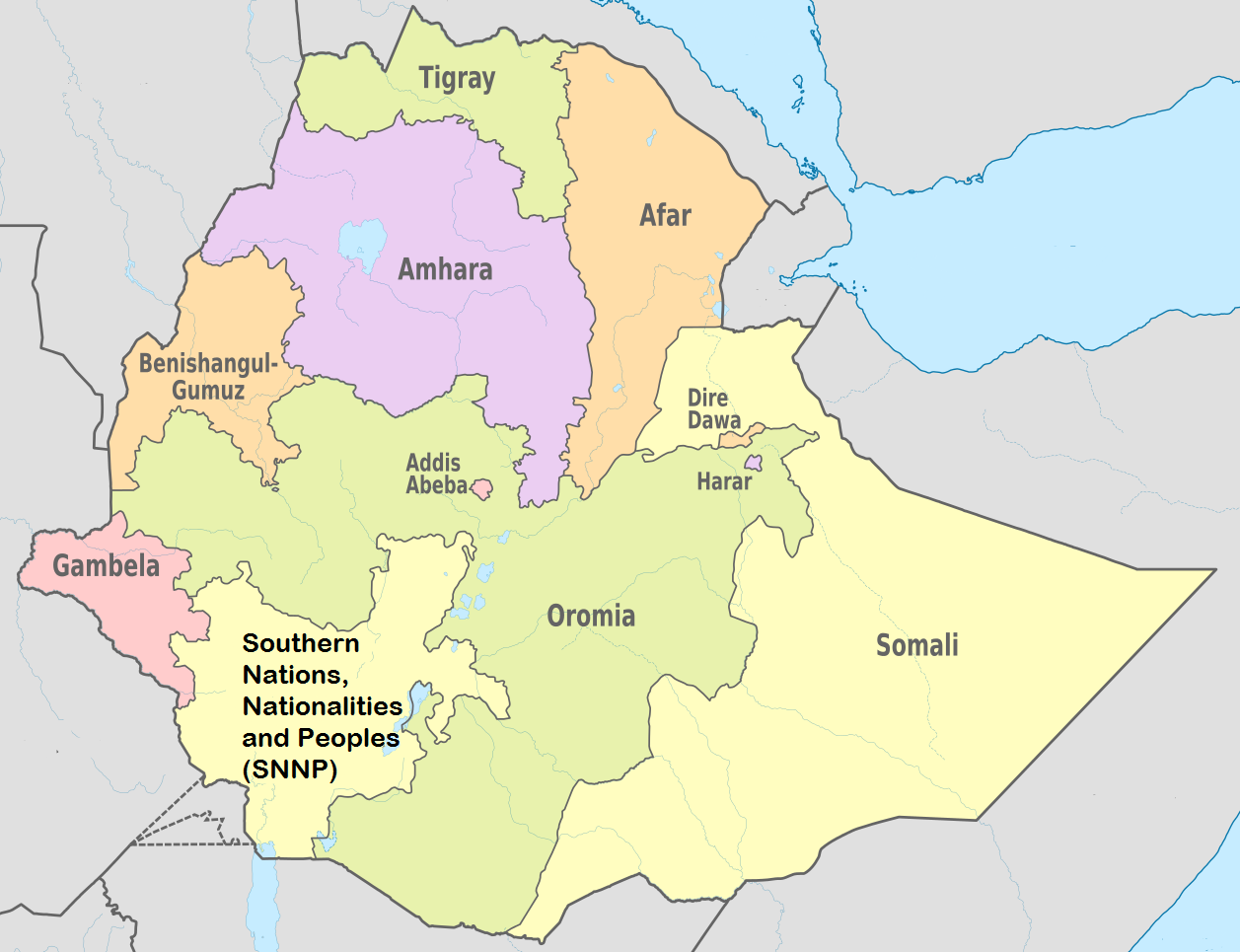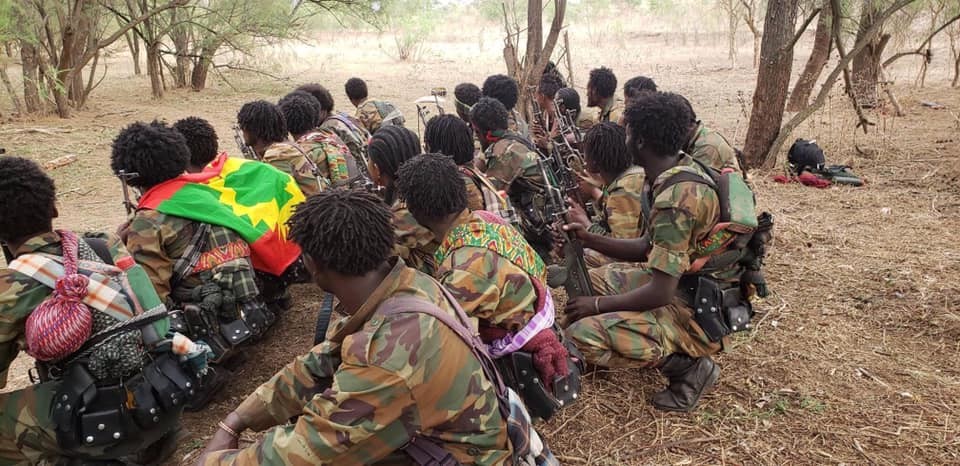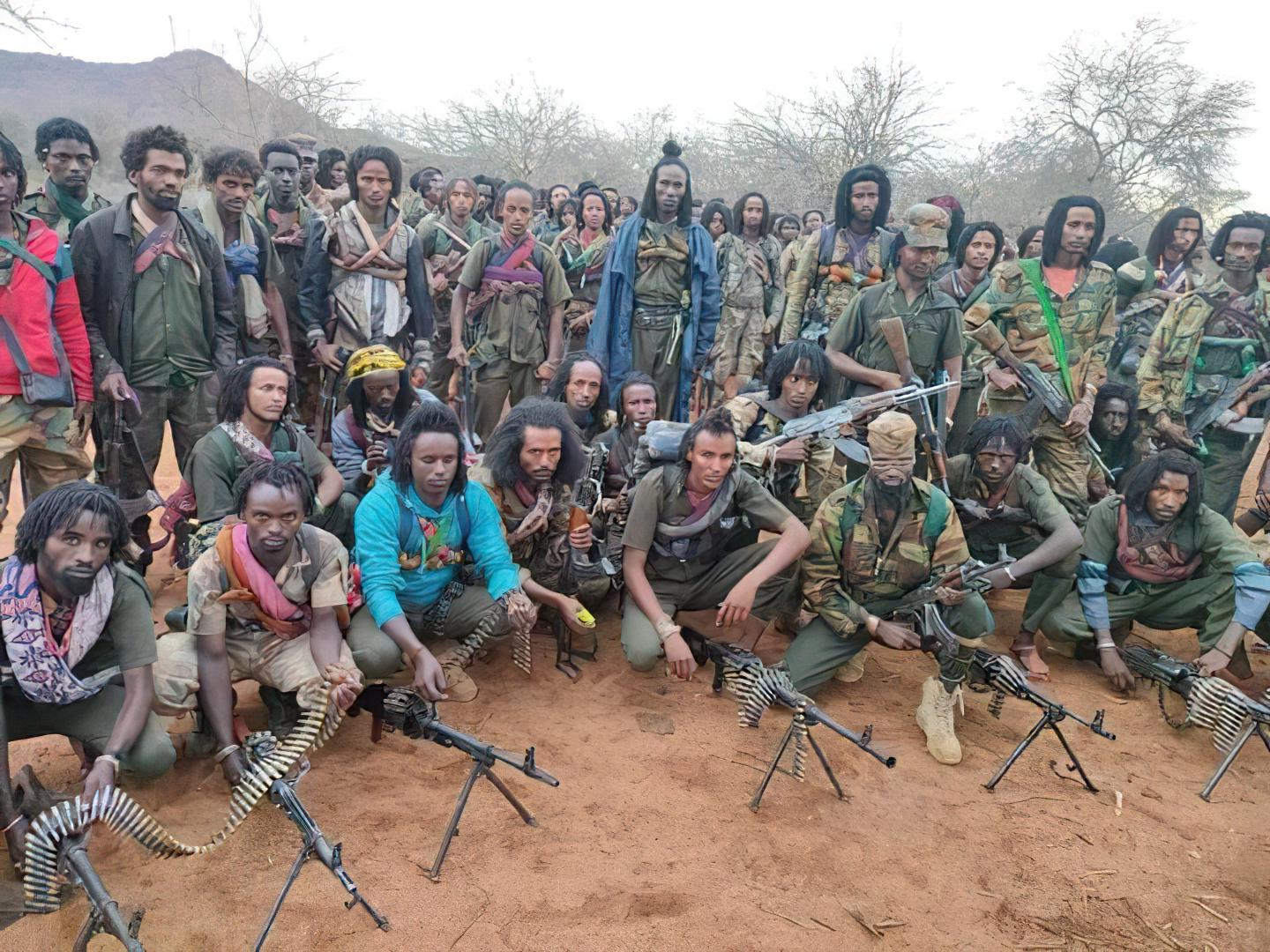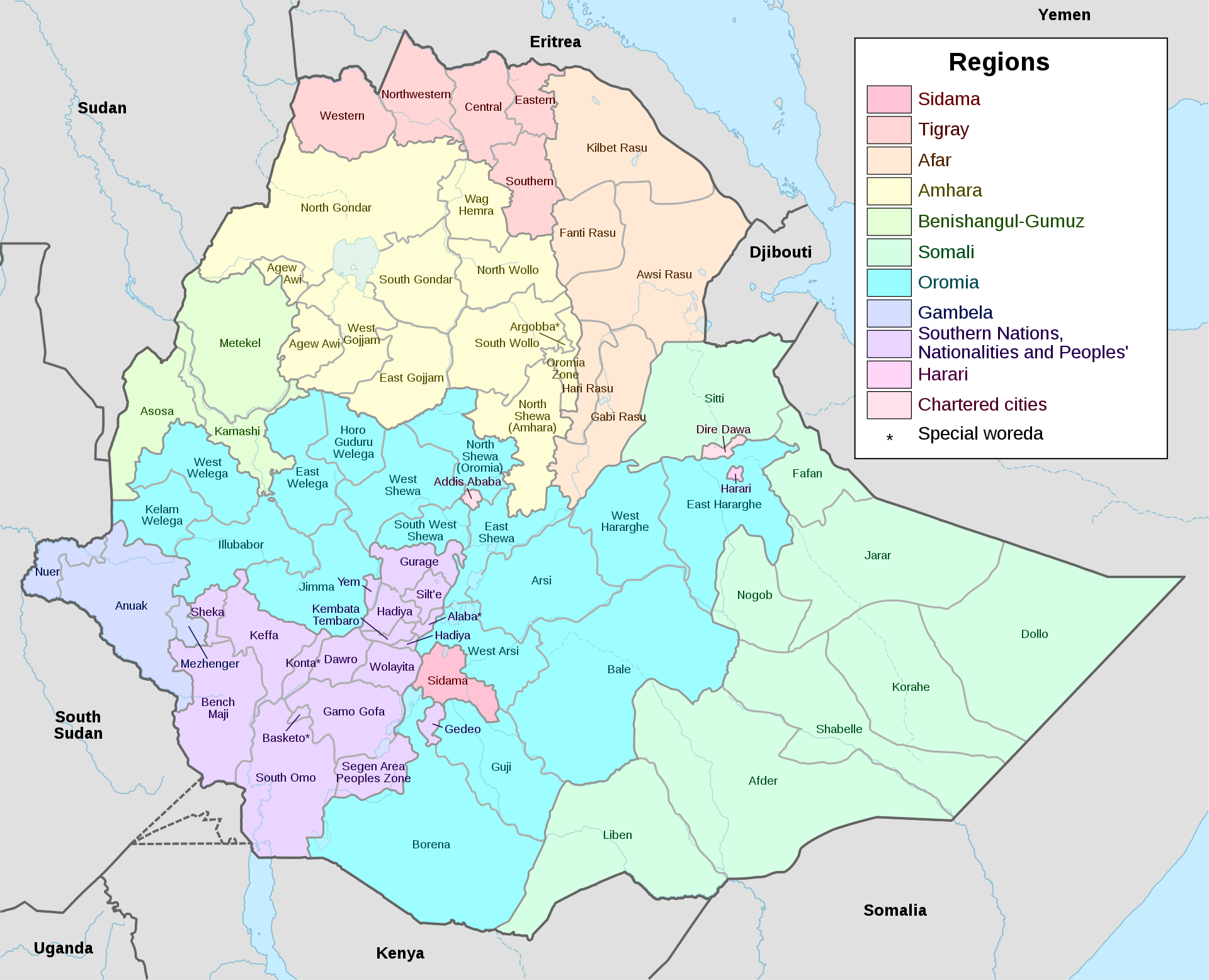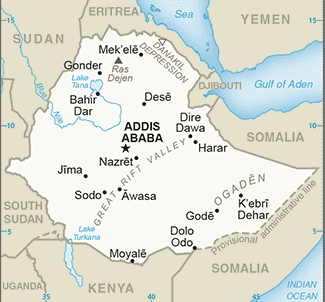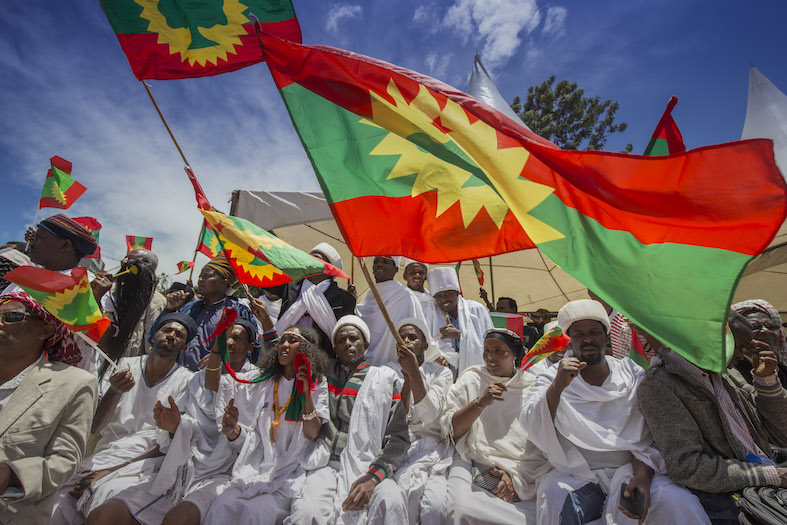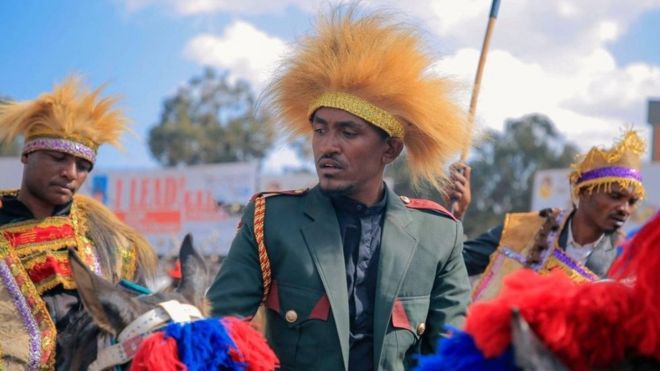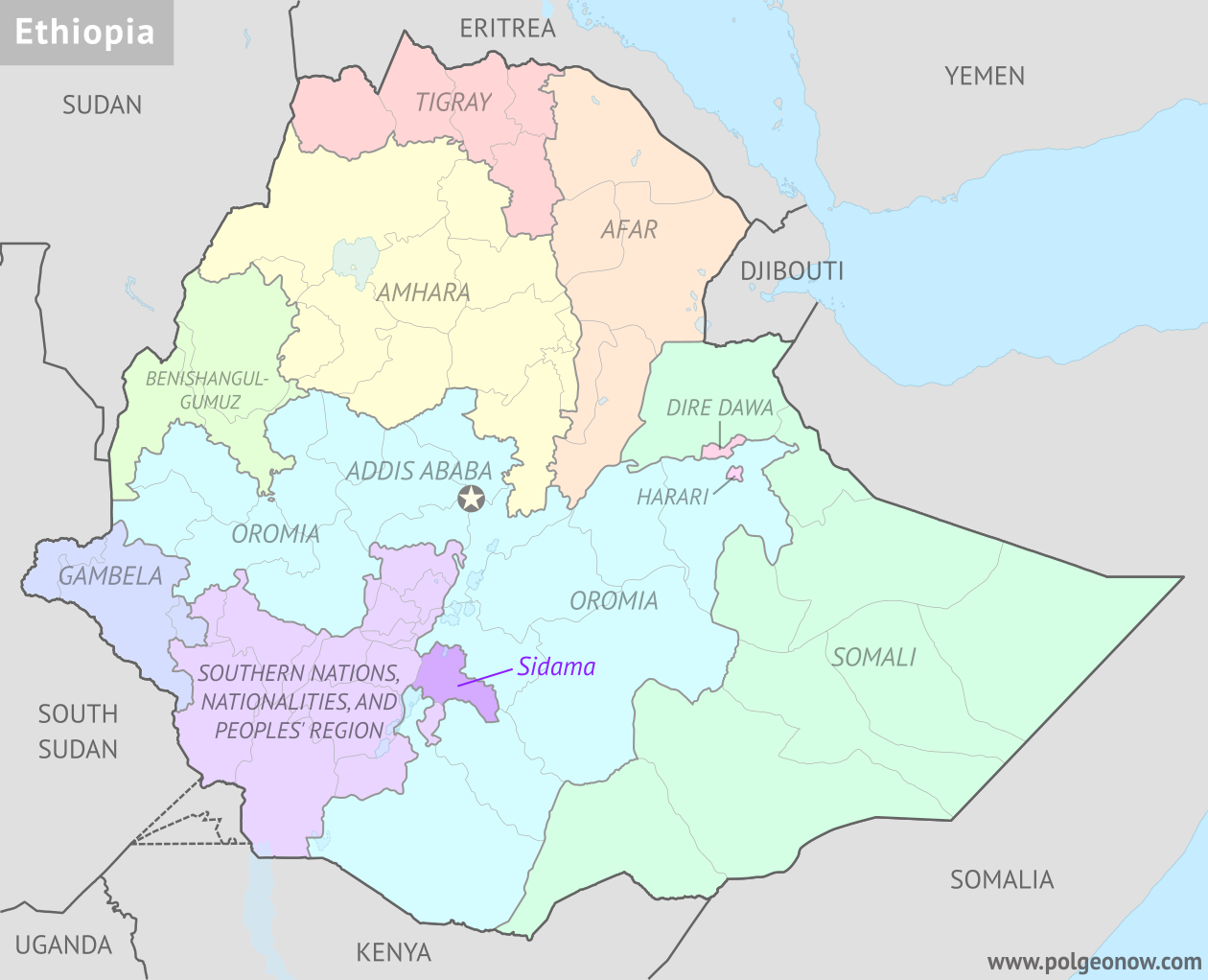
Ethiopia: ‘secret committee’ to suppress Oromo insurgency
An investigation published by Reuters reveals that a “secret committee” of high-ranking officials in Ethiopia has been overseeing a campaign of extra-judicial killings, illegal detentions and other human rights violations in an effort to eliminate the Oromo Liberation Army (OLA)insurgent group. The so-called Koree Nageenyaa (Security Committee in the Oromo language) has ordered “hundreds of arrests” and “dozens of killings” of any persons suspected of involvement with the OLA, as well as a “massacre of 14 shepherds in Oromia in 2021 that the government has previously blamed on OLA fighters.” The Koree Nageenyaa is reportedly headed by Prime Minister Abiy’s former chief of staff and current president of the Oromia region, Shimelis Abdisa. (Map: Political Geography Now)



